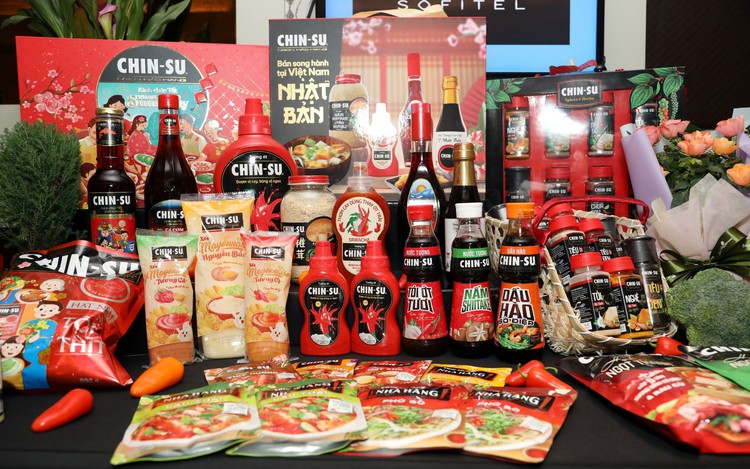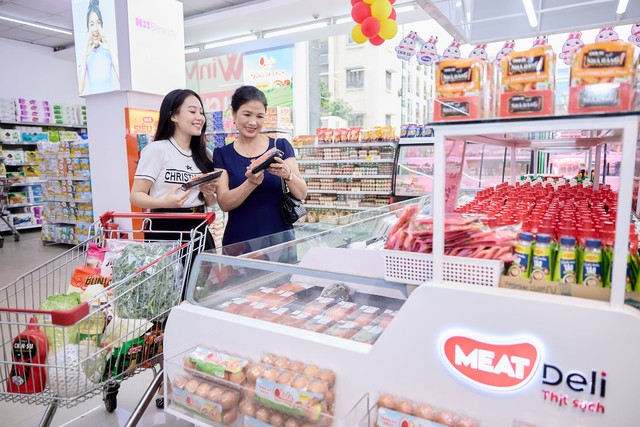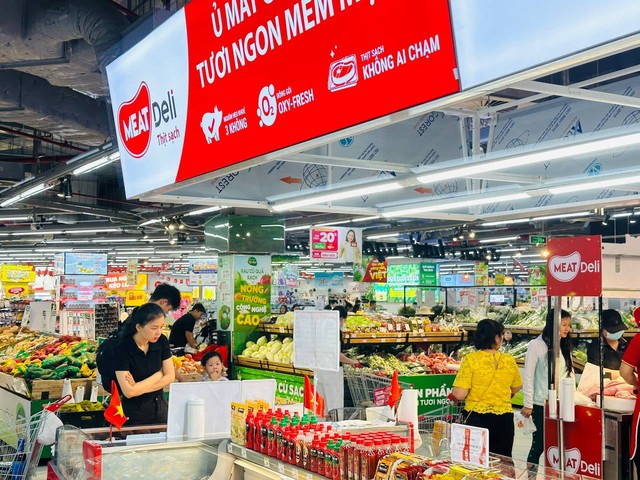
Masan Consumer products
The country's livestock industry in general – and the meat sector in particular – is now entering a period of transformation marked by both opportunities and challenges.
'Golden time' for meat industry to accelerate
Looking ahead, the implementation of the 'Livestock Development Strategy for the 2021–2030 Period, with a Vision to 2045' is expected to continue advancing livestock farming into a market-oriented, commodity-based sector.
The strategy aims to ensure a stable domestic supply of essential food products and promote the export of high-potential goods such as meat, eggs, dairy products, and honey.
At the same time, international cooperation is being strengthened to control dangerous diseases and ensure food safety. Investment from both domestic and foreign enterprises in the livestock sector is on the rise – especially in slaughtering and processing facilities geared toward exports.
Nguyen Xuan Duong, chairman of the Vietnam Livestock Association, said that the drafting of the Livestock Law and the Livestock Development Strategy was guided by a vision to create favorable conditions for building strong, integrated value chains in animal farming.
Large companies, whether domestic or foreign-invested, are expected to lead these chains.
These industry leaders will leverage their strengths to invest in areas that small-scale farms cannot handle, such as feed production, slaughtering, processing, and market creation – or even market design.

Clients buy MEATDeli chilled meat.
From there, cooperatives and household farms will be guided to join the chain in a more efficient and sustainable manner.
As a result, top companies with the capacity to consolidate market share and vertically integrate operations are well-positioned to secure long-term advantages in Vietnam.
Masan MEATLife, a member company of the Masan Group, holds a unique position to capitalize on these inevitable mid- and long-term industry trends.
Branded meat business modeled on consumer goods
Masan MEATLife (MML) is one of Vietnam's leading companies in the branded meat value chain.
It focuses on improving productivity in the country's animal protein sector through efficient operations, nationwide reach, and a superior supply chain enabled by partnerships with top players across the value chain.
With its goal of developing a branded meat platform, MML recognizes that everything starts with healthy, high-quality breeds.
The company has thus increased its use of technology in animal husbandry to control farming performance and prevent disease outbreaks.
In addition to chilled meat, MML's processed meat segment recorded strong growth in 2024 with new products that cater to the needs and age groups of different consumer segments.
These efforts mark steps toward realizing the meat industry's full potential, meeting domestic consumption needs, and eventually targeting export markets.
Notably, MML has expanded its distribution network via the nationwide WinMart and WinMart+ retail systems.
With a competitive pricing strategy – including exclusive pricing programs for WiN members – Masan MEATLife is narrowing the price gap between its MEATDeli products and meat sold in traditional markets.
This helps increase product volume and improve utilization rates at processing plants.
The initial success of the MML–WinMart/WinMart+/WiN partnership was evident in the first quarter of 2025, as average sales per outlet rose by 24.9 percent year on year.

Consumers shop for MEATDeli products.
Both fresh and processed meat segments saw double-digit growth. Processed meat, in particular, stood out with the Ponnie and Heo Cao Bồi brands, achieving average monthly revenue of VND 240 billion.
This pricing strategy not only gives more consumers access to higher-quality meat but also boosts production volume, leading to better plant utilization and lower per-unit production costs, thereby helping Masan MEATLife increase long-term profitability.
In 2025, MML expects to generate revenue between VND8.25 trillion (US$316.8 million) and VND8.749 trillion ($336 million), marking up-to-18-percent year-on-year growth.
The company plans to continue its transformation toward becoming a fully integrated meat processor with deeper collaboration with WinCommerce.
Chilled European-standard meat: Safe, traceable
Chilled meat is now widespread in Europe, thanks to advanced chilling technology that ensures product quality, safety, and ease of storage.
The European-standard chilling process is applied throughout slaughtering and meat-cutting stages.
Meat is rapidly cooled right after slaughter to prevent bacterial contamination.
It is then held at a stable temperature of 0–4°C for around 24 hours, allowing natural enzymes in the meat to tenderize the fibers and enhance flavor – a process known as biochemical maturation.
The meat is kept at the same chilled temperature during cutting, transport, and storage to maintain freshness, tenderness, and maximum nutritional content.
Only meat processed through all three steps – rapid cooling, chilling equilibrium, and continuous chilling – can be called European-standard chilled meat.
Consumers can purchase MEATDeli chilled meat, a brand by Masan MEATLife, at major supermarkets nationwide, including WinMart, WinMart+, and WiN stores.
Notably, MEATDeli is the first meat brand in Vietnam to meet the BRC standard, a global food safety benchmark established by the British Retail Consortium.
To earn BRC certification, producers must meet strict criteria on continuous improvement, food safety, and clear traceability.


Max: 1500 characters
There are no comments yet. Be the first to comment.